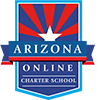Dictionary (noun): a reference book that contains words listed in alphabetical order and that gives information about the words’ meanings, forms, pronunciations, etc.
For budding readers and experienced learners, dictionaries are a fantastic source to reference when exposed to a new vocabulary word. No matter your student’s reading level, dictionaries are full of fantastic words for children to discover and use in their reading, writing, and a variety of academic pursuits. In honor of Dictionary Day on October 16, we have compiled a list of fun dictionary facts to share with the word fanatics in your family.
- The word computer has had three different meanings since its origin in 1613. According to the Oxford Dictionary, it originally referred to a person, then a machine in 1869, and finally an electronic device in 1946.
- The first edition of the Oxford English Dictionary took 70 years to complete and contained 15,490 pages across 10 volumes.
- E is the most commonly used letter in the English language.
- In 1604, the first English dictionary was written by schoolmaster Robert Cawdrey.
- There are a wide variety of dictionaries, ranging from specialized to natural language processing dictionaries.
- The oldest known dictionary dates back to 2300 BCE in Ebla, or modern Syria.
- Noah Webster wrote the first American English Dictionary in 1806. Dictionary Day was named in honor of his birthday: October 16, 1758.
- Today you can access a variety of dictionaries online, the most popular being Dictionary.com.
Dictionaries remain a constant source of word-related fun and knowledge. Encourage your child(ren) to try to find a new word every day to expand their vocabulary and look up words which challenge them. The power of words is infinite!


